Top Rankings
Lodi School District ranks among the top 20% of public school district in Wisconsin for:
Category
Attribute
Graduation Rate
Highest graduation rate (Top 20%)
For the 2025 school year, there is 1 public preschool serving 396 students in Lodi School District.
Public Preschools in Lodi School District have a diversity score of 0.15, which is less than the Wisconsin public preschool average of 0.58.
Minority enrollment is 8% of the student body (majority Hispanic), which is less than the Wisconsin public preschool average of 38% (majority Hispanic and Black).
Overview
This School District
This State (WI)
# Schools
5 Schools
1,032 Schools
# Students
1,487 Students
339,535 Students
# Teachers
113 Teachers
24,694 Teachers
Student : Teacher Ratio
13:1
13:1
District Rank
Lodi School District, which is ranked within the top 50% of all 444 school districts in Wisconsin (based off of combined math and reading proficiency testing data) for the 2021-2022 school year.
The school district's graduation rate of 95% has stayed relatively flat over five school years.
Overall District Rank
#212 out of 450 school districts
(Top 50%)
(Top 50%)
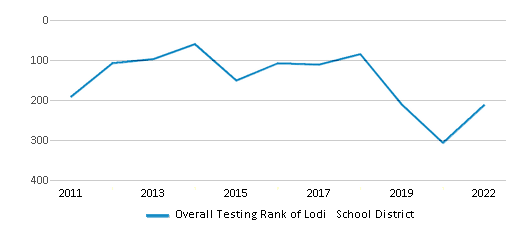
Math Test Scores (% Proficient)
41%
39%
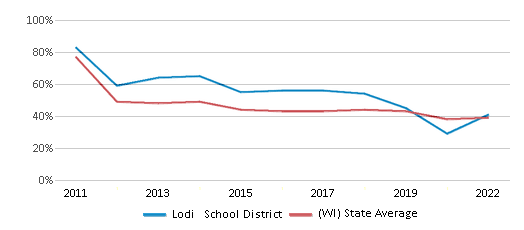
Reading/Language Arts Test Scores (% Proficient)
38%
38%
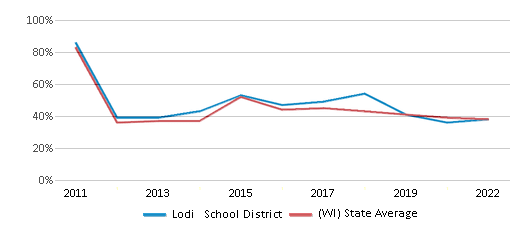
Science Test Scores (% Proficient)
47%
44%
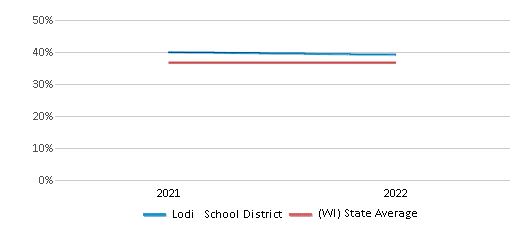
Graduation Rate
≥95%
90%
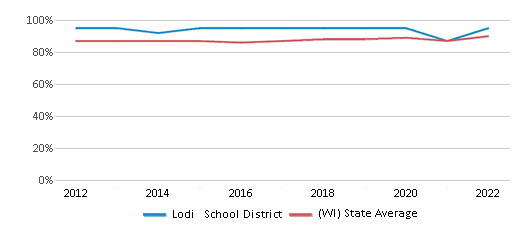
Students by Ethnicity:
Diversity Score
0.18
0.58
# American Indian Students
2 Students
3,435 Students
% American Indian Students
n/a
1%
# Asian Students
32 Students
15,647 Students
% Asian Students
2%
5%
# Hispanic Students
70 Students
52,197 Students
% Hispanic Students
5%
15%
# Black Students
7 Students
39,149 Students
% Black Students
1%
11%
# White Students
1,343 Students
209,143 Students
% White Students
90%
62%
# Hawaiian Students
1 Student
297 Students
% Hawaiian Students
n/a
n/a
# Two or more races Students
32 Students
19,658 Students
% of Two or more races Students
2%
6%
Students by Grade:
# Students in PK Grade:
104
50,321
# Students in K Grade:
89
44,890
# Students in 1st Grade:
99
45,508
# Students in 2nd Grade:
104
45,837
# Students in 3rd Grade:
97
43,291
# Students in 4th Grade:
102
42,370
# Students in 5th Grade:
115
35,557
# Students in 6th Grade:
102
11,124
# Students in 7th Grade:
119
7,438
# Students in 8th Grade:
105
7,747
# Students in 9th Grade:
100
1,444
# Students in 10th Grade:
115
1,335
# Students in 11th Grade:
116
1,345
# Students in 12th Grade:
120
1,328
# Ungraded Students:
-
-
District Revenue and Spending
The revenue/student of $16,771 in this school district is less than the state median of $17,039. The school district revenue/student has stayed relatively flat over four school years.
The school district's spending/student of $15,346 is less than the state median of $17,011. The school district spending/student has stayed relatively flat over four school years.
Total Revenue
$25 MM
$13,869 MM
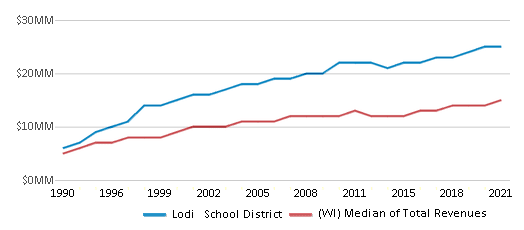
Spending
$23 MM
$13,846 MM
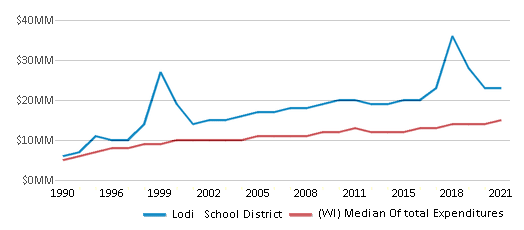
Revenue / Student
$16,771
$17,039
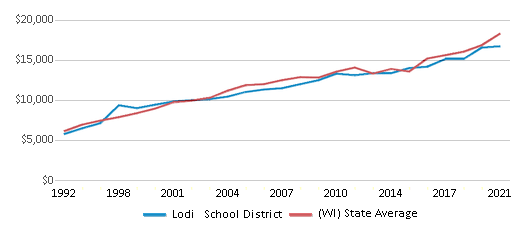
Spending / Student
$15,346
$17,011
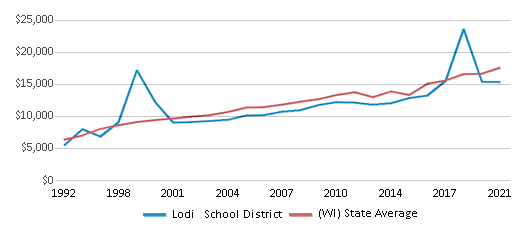
Best Lodi School District Public Preschools (2025)
School
(Math and Reading Proficiency)
(Math and Reading Proficiency)
Location
Grades
Students
Recent Articles

What Is A Charter School?
Explore the world of charter schools in this comprehensive guide. Learn about their history, how they operate, and the pros and cons of this educational innovation. Discover key facts about charter schools, including admission policies, demographics, and funding, as well as what to look for when considering a charter school for your child.

10 Reasons Why High School Sports Benefit Students
Discover the 10 compelling reasons why high school sports are beneficial for students. This comprehensive article explores how athletics enhance academic performance, foster personal growth, and develop crucial life skills. From improved fitness and time management to leadership development and community representation, learn why participating in high school sports can be a game-changer for students' overall success and well-being.

February 05, 2025
Understanding the U.S. Department of Education: Structure, Impact, and EvolutionWe explore how the Department of Education shapes American education, from its cabinet-level leadership to its impact on millions of students, written for general audiences seeking clarity on this vital institution.





